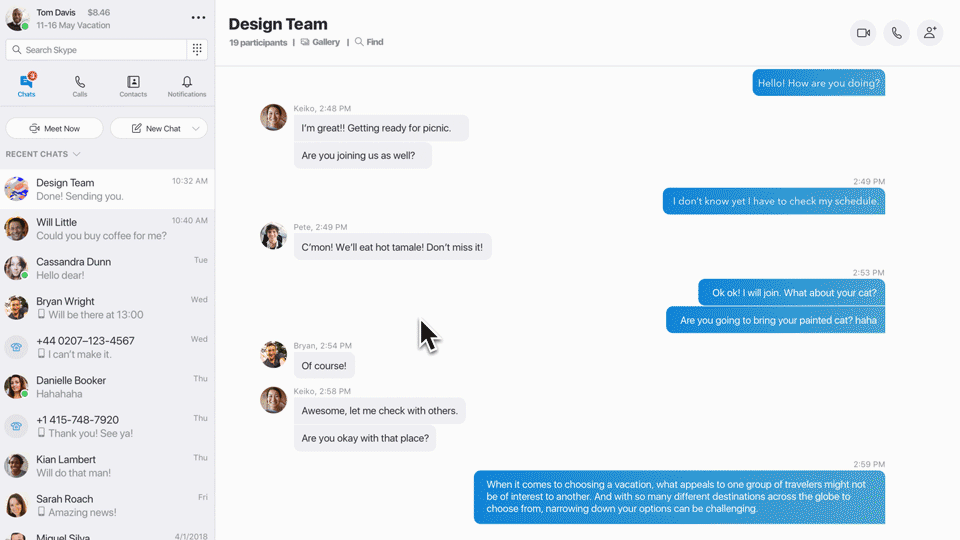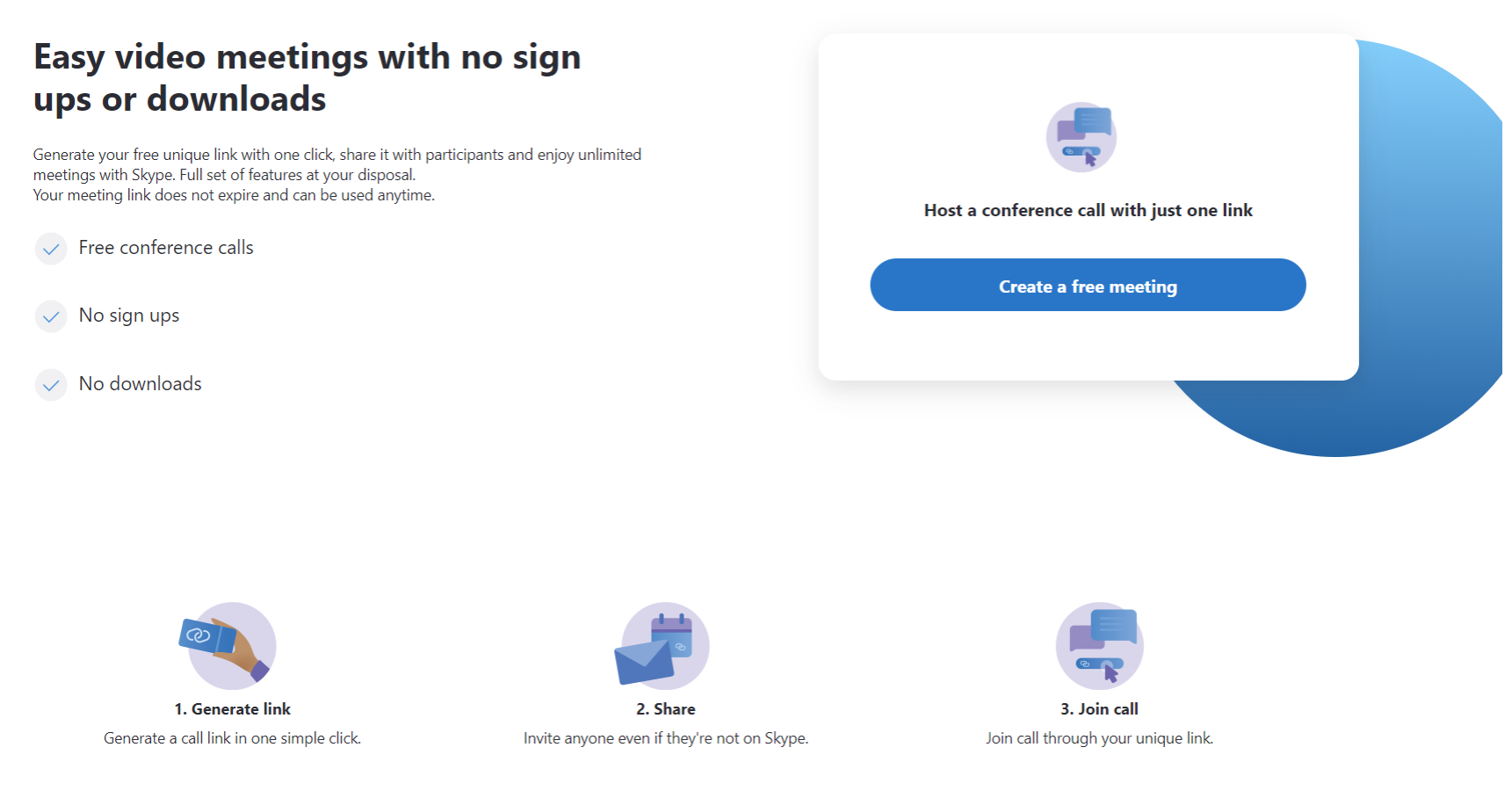The big picture: Microsoft appears to be seizing a window of opportunity for Skype as rival Zoom struggles to sustain and protect its surging 200 million+ userbase from the recently discovered security and privacy issues. The ongoing troubles have caused New York City to ban Zoom in favor of Microsoft Teams across its 1,800 schools, as the reactive trend for switching to Zoom-alternatives picks up pace globally. Skype, too, is one such alternative, which recently added a new Zoom-like video calling feature that goes one step ahead by letting hosts initiate meetings without signing up on the platform.
Although Skype remains a shadow of its former self due to Microsoft's mishandling of the platform post-acquisition, the app's new 'Meet Now' feature comes at the right time for many people looking to host and attend meetings remotely, as Zoom halts feature development and sorts out security issues.
Skype's process is fairly quick and simple and allows for hosting a video conference within a few seconds. Every meeting gets a unique link that the host can share with participants, both of whom are not required to sign up on Skype. Microsoft also notes that these meeting links do not expire and can be used at any time.

Users on desktop can join calls through the Skype app or its web client, as long as they're using Microsoft Edge or Google Chrome. Mobile users can also join as guests; however, they need to have Skype on their phones as pasting the meeting link in a mobile browser will prompt them to install the app.
Other Skype features such as screen-sharing and background blurring are also available on Meet Now video calls, along with the ability to record conversations for later reviews, which Skype will keep for 30 days.
On the surface, Skype's link-based Meet Now seems somewhat similar to Zoom's Meeting ID feature, in the way it easily lets anyone join in on the conversation with just a small bit of information. Although its security measures are likely more robust than Zoom's, Skype Meet Now calls could still be susceptible to 'Zoom bombing,' and it remains to be seen if this feature gets popular enough to put Skype back on the map.
